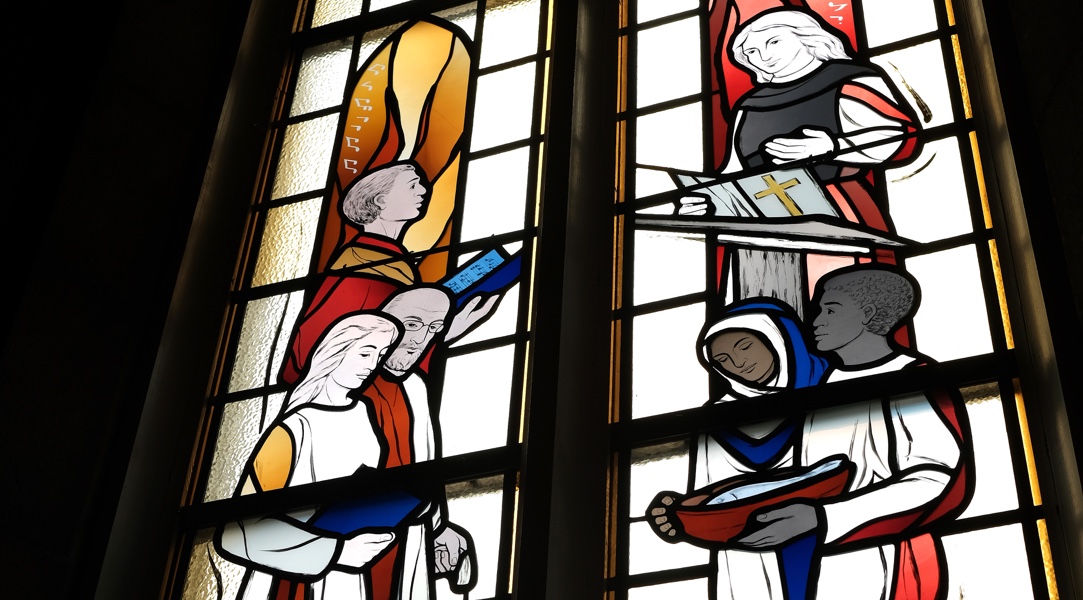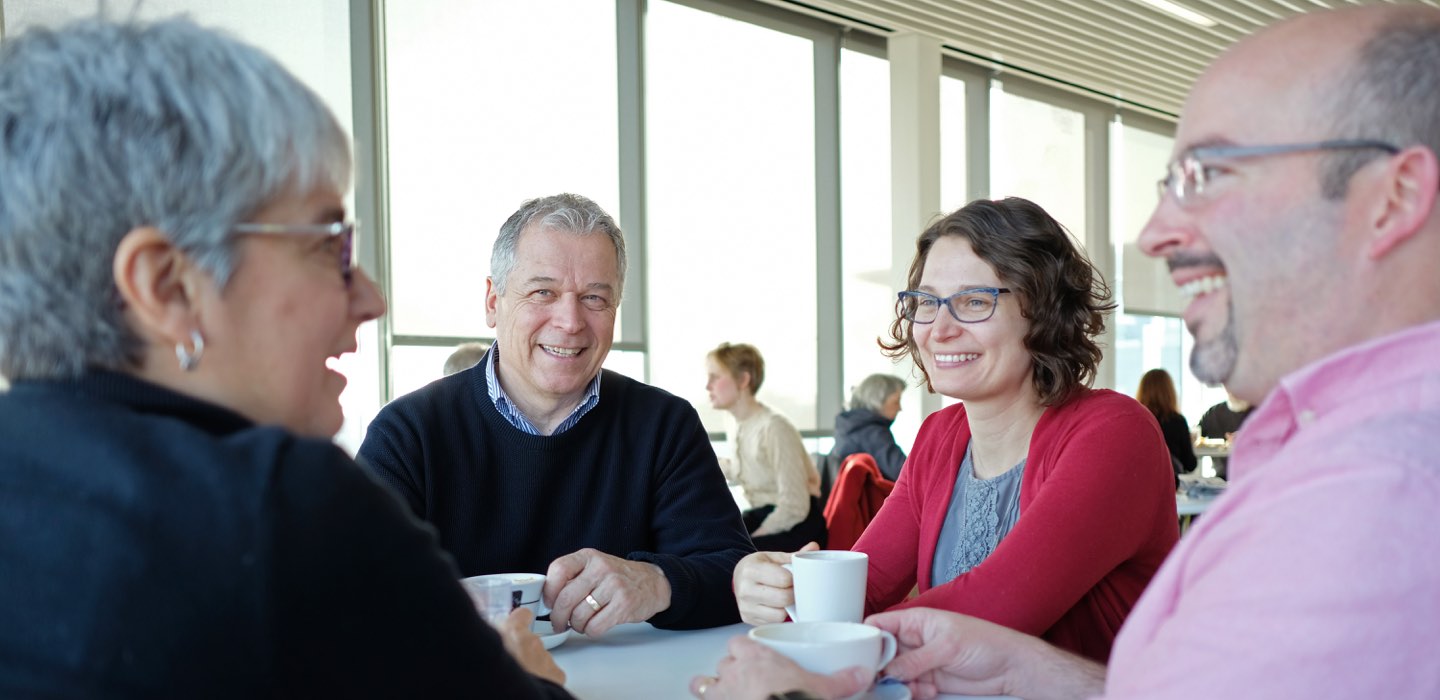Freedom is at the core of what it means to be Baptist—freedom both for churches and for individuals within a church. That means we who claim the title “Baptist” are quite a diverse lot—we believe differently, worship differently, behave differently. There is no creed or statement of faith that you sign to be a full participant in the church community. We all come with whatever faith and whatever doubts we have and commit to journey together.
What unites us at FBCH is our belief in the love of God for all people, especially as Jesus talked about love and embodies love. The Way of Jesus is summed up in our calling to love God and to love our neighbours. Have we said love enough? That’s kind of the point. Love is the centre of our life with God and with one another.

We initially came to FBCH looking for a church home. Andrea came from a Baptist upbringing while I was a Lutheran, so I expected I would connect with the music but perhaps not the worship style or social views. The inclusive and free-thinking community we came to know was not at all what I was expecting, and FBCH turned out to be the perfect place for me and my family to grow together
So, you might be a little different than other Baptist churches?
Yes. Each Baptist church is unique and generalizations do not often hold.
Indeed, FBCH has been breaking stereotypes since our beginning in 1827 when a group of Anglicans in Halifax grew frustrated that the King had the power to choose their clergy. They walked-out of their church in hopes of forming a new church in Halifax where the people of the congregation could be free to make their own decisions. After consulting with church leaders in Boston, they determined to form a Baptist congregation.
In the early 1900’s, that freedom led one of our ministers to debate another Baptist minister about how to interpret Scripture—arguing that many parts of the Bible should not be read literally (yes, you can trust science and honour Scripture). It led the congregation in the mid-1900’s to break the stained-glass ceiling by recognizing the leadership of women as Deacons and ordained clergy. More recently, that freedom led the congregation to affirm Christ’s love and welcome of all people regardless of sexual orientation (that means our LGBTQ+ sisters and brothers participate in the full life of the congregation, including serving as leaders).
But what if I’m not Baptist?
We welcome all people and have long been a church filled with folk from other backgrounds. Indeed, you’re as likely to find yourself worshipping alongside someone whose faith was previously nurtured within the United, Anglican, Presbyterian, or Catholic traditions as you are a lifelong Baptist. For that matter, you might find yourself worshipping next to someone who did not grow up in any faith tradition.
From our beginnings, Baptists have practiced believer’s baptism—which means we baptize adults and youth old enough to make their own decision to follow the Way of Jesus. We practice this baptism by full immersion. However, we also believe baptism unites followers of Jesus across all traditions and thus recognize the baptisms of other traditions. That means you can be a full part of our community whether immersed as an adult or sprinkled as an infant. What matters is your desire to follow the Way of Jesus.

The Smith Window commemorates aspects of our church life since we relocated to Oxford Street in 1950. The window includes a variety of skin tones, representing our growing diversity, and women in leadership. FBCH elected its first women deacons in 1976.
Tell me more about historic Baptist freedoms…
Glad you asked! At FBCH you will often hear us talking about our Four Fragile Freedoms. These freedoms are the historic values that we believe form the core of our identity:
Bible Freedom
The Bible is foundational to us as individuals and as a congregation. Every follower of Jesus has the freedom and right to interpret and apply Scripture under the leadership of the Holy Spirit. The wisdom and counsel of the larger congregation can nurture individuals as they seek to interpret and apply Scripture to their lives.
Soul Freedom
We are each accountable to God individually without the imposition of creed or the control of clergy or government. This personal experience with God is indispensable to living the Way of Jesus and necessary for a vital church. This is sometimes described as the “priesthood of all believers.”
Church Freedom
Baptist churches are free, under the Lordship of Christ, to determine their membership, leadership, doctrine and practice. This is sometimes known as “autonomy of the local church.” While no other church or group of churches can determine the practice of any other church,
individual churches can work together to achieve goals that one church by itself could not reach.
Religious Freedom
Everyone should be able to worship (or not) as they feel led without unnecessary interference by the government. Just as religious freedom involves the freedom to practice religion, it also includes the freedom not to practice religion. If you can’t say “no,” your “yes” is meaningless.
Are you connected to other Baptists?
Our most significant Baptist partnership is with the Canadian Association for Baptist Freedoms (CABF). This is a small group of Baptists, primarily in the Maritimes, that affirms historic Baptist freedoms. Our ministers are credentialed by the CABF. We are also affiliated with the Alliance of Baptists.
I want to learn more about FBCH and how to connect
Contact one of our staff (rustyedwards@fbchalifax.ca or paulaantunes@fbchalifax.ca). They will be happy to share more about the community of FBCH. Periodically, usually as interest arises, they offer a class for those wishing to learn more about the church and for those interested in baptism or church membership.

